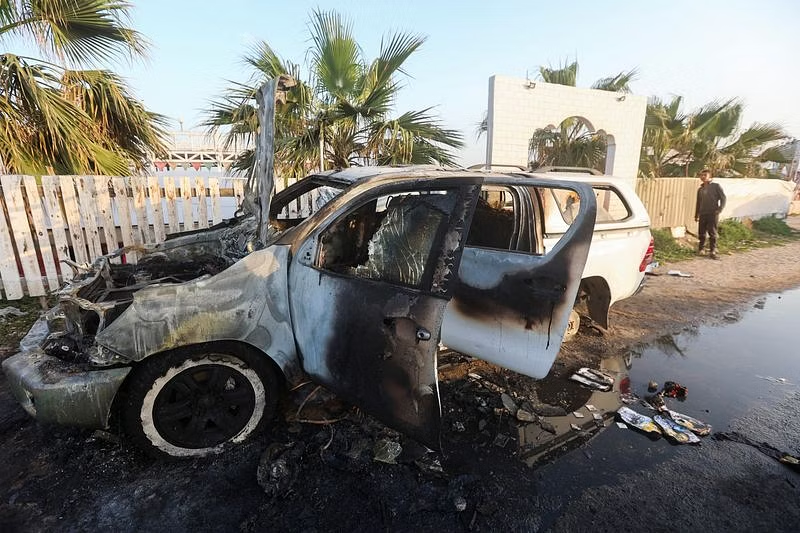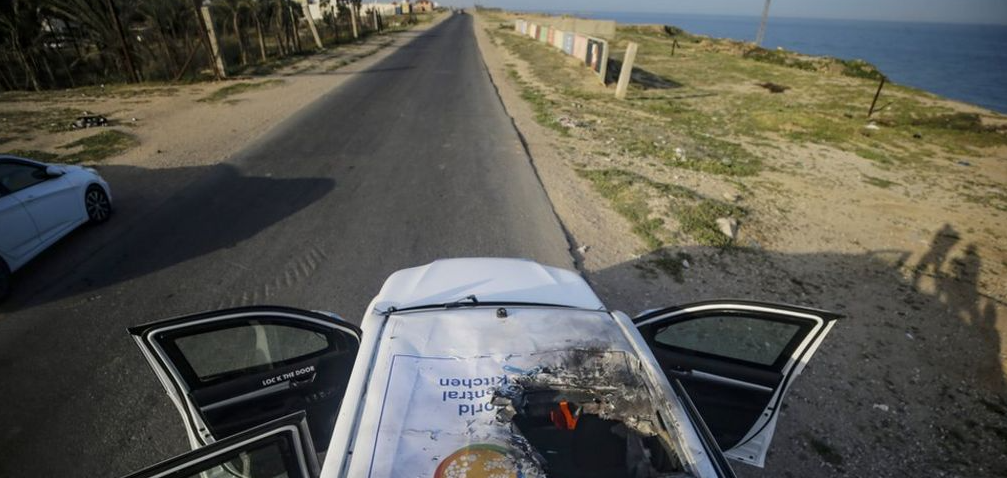An Israeli minister refutes the claim that the air strike on the Gaza aid convoy was intentional.
 An Israeli cabinet minister has rejected allegations that Israeli forces intentionally killed seven World Central Kitchen (WCK) aid workers in Gaza.
An Israeli cabinet minister has rejected allegations that Israeli forces intentionally killed seven World Central Kitchen (WCK) aid workers in Gaza.
WCK founder José Andrés accused Israel of systematically targeting his workers, vehicle by vehicle. However, Nir Barkat, a member of Israel’s war cabinet, dismissed Andrés’ remarks as “nonsense.”
Israel acknowledges that the strikes resulting in the workers’ deaths were a “serious mistake” and has committed to conducting an investigation.
My knowledge is up to date as of January 2022. Hamas is designated as a terrorist organization by several countries and international bodies, including the United States, the European Union, Israel, Canada, and others.
According to WCK, the aid convoy was struck as it departed the Deir al-Balah warehouse, where the team had offloaded over 100 tonnes of humanitarian food aid delivered to Gaza via the maritime route.
The convoy consisted of three vehicles, two of which were armored and prominently displayed the charity’s logo. The vehicles were approximately 2.5km (1.5 miles) apart from each other, and all three were targeted in the attack.
In a separate interview with Israel’s Channel 12 news, Mr. Andrés stated that it was a direct attack on clearly marked vehicles whose movements were well known to the IDF (Israel Defense Forces).
The bodies of six foreign WCK workers have been transported to Egypt for repatriation, while their 25-year-old Palestinian colleague was laid to rest in his hometown of Rafah, southern Gaza, on Tuesday.
WCK announced the suspension of its operations on Tuesday, raising concerns about the continuity of humanitarian aid to the Gaza Strip.
Cogat, the Israeli defense ministry body overseeing civilian policy in the Occupied Palestinian Territories, reports that WCK is responsible for 60% of the non-governmental aid entering the territory.
WCK has distributed 42 million meals in the Gaza Strip, using over 1,700 food trucks and sending nearly 435,000 meals by sea.



